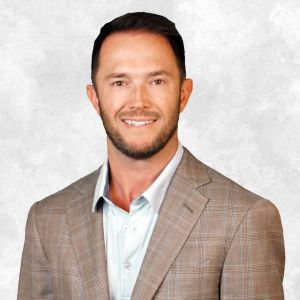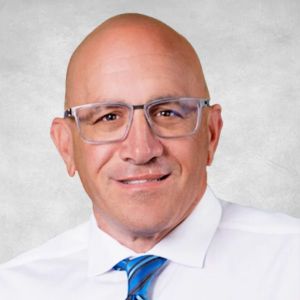






Origins Texas Recovery
Verified Center
This provider's information has been quality-checked by Recovery.com's Research Team for accuracy and completeness, including center verification through appropriate third-party organizations.
Treatment Focus
This center treats substance use disorders and co-occurring mental health conditions. Your treatment plan addresses each condition at once with personalized, compassionate care for comprehensive healing.
Primary Level of Care
Offering intensive care with 24/7 monitoring, residential treatment is typically 30 days and can cover multiple levels of care. Length can range from 14 to 90 days typically.
Treatment Focus
This center treats substance use disorders and co-occurring mental health conditions. Your treatment plan addresses each condition at once with personalized, compassionate care for comprehensive healing.
Primary Level of Care
Offering intensive care with 24/7 monitoring, residential treatment is typically 30 days and can cover multiple levels of care. Length can range from 14 to 90 days typically.
Provider's Policy
Origins Recovery Center is proud to be in-network with the nation’s largest health insurance providers. The center does not accept Medicaid, Medicare, or state insurance.
Origins Texas Recovery
Origins Texas Recovery
About Origins Texas Recovery
Origins Texas Recovery specializes in evidence-based, gender-separate programming where men can take a step back from stressful situations and toxic relationships that may keep addiction alive. They treat addictions and co-occurring mental health conditions using a trauma-informed approach, and provide quality medical care during detox and throughout treatment. In both inpatient and outpatient programs, they target the key areas that keep men from lasting recovery. Their team addresses concerns that are unique to the male experience, such as school and work troubles, toxic relationships, a failure to launch into adulthood, marriage troubles, and trauma.
Receive Personalized Care in a Close-Knit Community
Origins Texas Recovery emphasizes the importance of personalized care within an intimate setting. Their facilities are designed with a limited number of beds to foster a close-knit community where every client feels seen, heard, and valued. Each day includes structured therapy sessions, support groups, recreational activities, and opportunities for personal reflection. They use various therapeutic approaches to address the complex needs of men struggling with addiction: 24/7 medically-supervised detox, evidence-based therapies, 12-Step immersion, and experiential therapies like outdoor activities, trust exercises, and cooperative games. Yoga, meditation, and biofeedback provide additional support in managing stress and enhancing mindfulness.
Discover the Power of Brotherhood in Recovery
Origins Texas Recovery’s men’s-only program enables men to focus entirely on their recovery without distractions, enhancing the overall effectiveness of the program. The structured environment and activities strengthen bonds among the men, promoting a robust support system crucial for long-term sobriety. Daily beach walks, community events, and specialized therapies help create a community of peers who understand and support each other on their recovery journey.
Lean on Robust Post-Treatment Support
Origins Texas Recovery recognizes the importance of aftercare and continuing support services for maintaining sobriety. They offer a variety of resources including ongoing therapy, alumni programs, recovery coaching, accountability groups, family support services, and effective relapse prevention strategies. Their dedicated alumni support teams keep clients connected to a supportive community through regular meetings and activities. They also offer sober living assistance.
Stay at a Peaceful Coastal Retreat
Surrounded by the natural beauty of the sea, Origins Texas provides a peaceful setting for residents to embark on their recovery journey. Their men’s facility in South Padre Island offers a resort-grade campus with a pool, private gym, and personal trainer, all walking distance from the beach. Clients share bedrooms and bathrooms, and eat chef-prepared meals. Clients enjoy rec rooms inside, as well as outdoor lounge areas on the grounds.
Highlights from the Center
Highlights
These highlights are provided by and paid for by the center.
On-site Medical Detox
Gender Separate Housing
Addiction Recovery
Center Overview
Treatment Focus
This center treats substance use disorders and co-occurring mental health conditions. Your treatment plan addresses each condition at once with personalized, compassionate care for comprehensive healing.
CARF Accredited
CARF stands for the Commission on Accreditation of Rehabilitation Facilities. It's an independent, non-profit organization that provides accreditation services for a variety of healthcare services. To be accredited means that the program meets their standards for quality, effectiveness, and person-centered care.
Insurance Accepted
Cash Pay Rates
Estimated Cash Pay Rate
Center pricing can vary based on program and length of stay. Contact the center for more information. Recovery.com strives for price transparency so you can make an informed decision.
Luxury rehab centers offer a unique blend of luxurious amenities and high-quality treatment. From private suites to gourmet dining, personal trainers to spa treatments, these facilities provide a high level of comfort and discretion.

Meet Your Care Team

Thomas Isbell
CEO

Roy M. Serpa
Chairman of the Board

Derek Gwaltney
Chief Marketing Officer

Alan Goodstat
Director of Compliance
LCSW

David Armando Tejeda
Executive Director and Clinical Director

Bob Letke
Program Director
MA LPC Associate, LCDC, EMDR Trained

Stefanie Litwiller
Human Resources Director
MSHRD, SPHR

Donna French
Director of Finance

Mandy Baker
Vice President of Texas Operations
MS, LCDC

Dan Gilmer
Director of Clinical Outreach

Erik Jokinen
Director of Admissions

Joan Hovland
Primary Counselor at Hannah’s House
MSW, LCSW, LCDC

Bianca Elizondo
Human Resources Manager

Stacy Conley
Compliance Coordinator

Jose M. Martinez, Jr.
Nurse Manager
RN

Alexandra Brotzman
Family Nurse Practitioner
FNP-C, PMHNP-BC




Levels of Care









Your Care Options
Specializations
Alcohol
Using alcohol as a coping mechanism, or drinking excessively throughout the week, signals an alcohol use disorder.
Detox
Detox fully and safely removes toxic substances from the body, allowing the next steps in treatment to begin with a clean slate.
Chronic Relapse
Consistent relapse occurs repeatedly, after partial recovery from addiction. This condition requires long-term treatment.
Co-Occurring Disorders
A person with multiple mental health diagnoses, such as addiction and depression, has co-occurring disorders also called dual diagnosis.
Drug Addiction
Drug addiction is the excessive and repetitive use of substances, despite harmful consequences to a person's life, health, and relationships.
Opioids
Opioids produce pain-relief and euphoria, which can lead to addiction. This class of drugs includes prescribed medication and the illegal drug heroin.
Trauma
Some traumatic events are so disturbing that they cause long-term mental health problems. Those ongoing issues can also be referred to as "trauma."
Who We Treat
Approaches
Evidence-Based
A combination of scientifically rooted therapies and treatments make up evidence-based care, defined by their measured and proven results.
Family Involvement
Providers involve family in the treatment of their loved one through family therapy, visits, or both–because addiction is a family disease.
Individual Treatment
Individual care meets the needs of each patient, using personalized treatment to provide them the most relevant care and greatest chance of success.
Gender-Specific
Separate treatment for men or women can create strong peer connections and remove barriers related to trauma, shame, and gender-specific nuances.
Therapies
1-on-1 Counseling
Patient and therapist meet 1-on-1 to work through difficult emotions and behavioral challenges in a personal, private setting.
Meditation & Mindfulness
A practiced state of mind that brings patients to the present. It allows them to become fully aware of themselves, their feelings, and the present moment.
Trauma-Specific Therapy
This form of talk therapy addresses any childhood trauma at the root of a patient's current diagnosis.
Adventure Therapy
This experiential approach uses the physical and emotional challenges of outdoor activities as tools for personal growth.
Attachment-Based Family Therapy
ABFT is a trauma-focused therapy that teaches you to form healthy relationships by rebuilding trust and healing attachment issues formed in childhood.
Art Therapy
Visual art invites patients to examine the emotions within their work, focusing on the process of creativity and its gentle therapeutic power.
Experiential Therapy
With this approach, patients heal by doing. Therapists help patients process difficult emotions to speak, using guided activities like art or dance.
Conditions We Treat
Personality Disorders
Personality disorders destabilize the way a person thinks, feels, and behaves. If untreated, they can undermine relationships and lead to severe distress.
ADHD, ADD
ADHD is a common mental health condition caused by dopamine imbalance. Common symptoms include inattention, hyperactivitiy, and impulsivity.
Anger
Although anger itself isn't a disorder, it can get out of hand. If this feeling interferes with your relationships and daily functioning, treatment can help.
Anxiety
Anxiety is a common mental health condition that can include excessive worry, panic attacks, physical tension, and increased blood pressure.
Bipolar
This mental health condition is characterized by extreme mood swings between depression, mania, and remission.
Burnout
Burnout entails mental and physical exhaustion, and leads to a severe lack of fulfillment. This condition is often caused by overwork.
Codependency
Codependency is a pattern of emotional dependence and controlling behavior. It's most common among people with addicted loved ones.
Depression
Symptoms of depression may include fatigue, a sense of numbness, and loss of interest in activities. This condition can range from mild to severe.
Post Traumatic Stress Disorder
PTSD is a long-term mental health issue caused by a disturbing event or events. Symptoms include anxiety, dissociation, flashbacks, and intrusive thoughts.
Substances We Treat
Alcohol
Using alcohol as a coping mechanism, or drinking excessively throughout the week, signals an alcohol use disorder.
Benzodiazepines
Benzodiazepines are prescribed to treat anxiety and sleep issues. They are highly habit forming, and their abuse can cause mood changes and poor judgement.
Chronic Relapse
Consistent relapse occurs repeatedly, after partial recovery from addiction. This condition requires long-term treatment.
Co-Occurring Disorders
A person with multiple mental health diagnoses, such as addiction and depression, has co-occurring disorders also called dual diagnosis.
Cocaine
Cocaine is a stimulant with euphoric effects. Agitation, muscle ticks, psychosis, and heart issues are common symptoms of cocaine abuse.
Drug Addiction
Drug addiction is the excessive and repetitive use of substances, despite harmful consequences to a person's life, health, and relationships.
Ecstasy
Ecstasy is a stimulant that causes intense euphoria and heightened awareness. Abuse of this drug can trigger depression, insomnia, and memory problems.
Heroin
Heroin is a highly addictive and illegal opioid. It can cause insomnia, collapsed veins, heart issues, and additional mental health issues.
Psychedelics
Hallucinogenic drugs—like LSD—cause euphoria and increased sensory experiences. When abused, they can lead to depression and psychosis.
Languages
Aftercare
Care Designed for Your Needs
Personal Amenities
Amenities
Special Considerations
Flexible technology policies
Centers with flexible technology policies allow professionals to stay in touch with work and give patients a greater sense of connection and normalcy.
Gender-specific groups
Patients in gender-specific groups gain the opportunity to discuss challenges unique to their gender in a comfortable, safe setting conducive to healing.
Activities
Off-Site Activities
Yoga
Yoga is both a physical and spiritual practice. It includes a flow of movement, breathing techniques, and meditation.
Off-Site Amenities
What people are saying
Treatment
5.0
Accommodations
5.0
Food & Nutrition
5.0
Value
4.0
MC
Treatment in 2021 • (30 days) • Reviewed 07/25/22
Loved One of a Former Client
•Orlando, Florida






